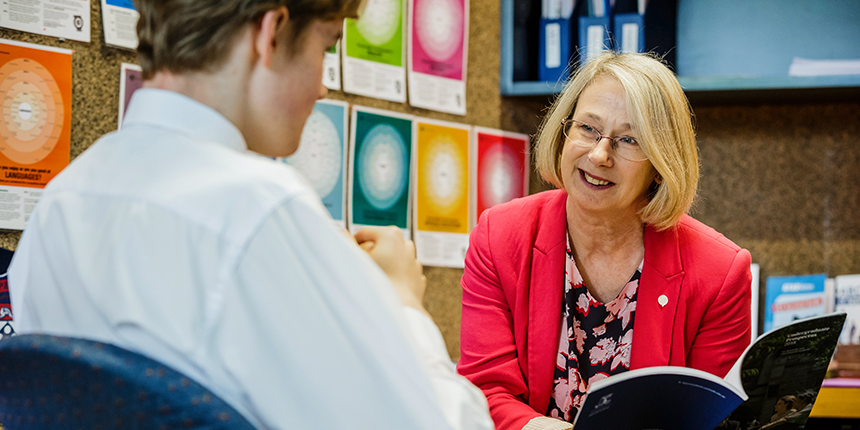Director of Career Development, Kirsten Larn, asks how to counsel students at a time when traditional career paths undergoing disruption.
This pace impacts on our understanding of traditional career pathways, with many being disrupted and replaced. It leads me to ponder how we can best prepare students for this uncertain world.
Traditionally, Melbourne Grammar School students aspire to, and are admitted into, tertiary study post Year 12. However, some may be committing themselves to an uncertain future. Choosing a specific career path in Year 12 seems ill advised when the student will not be entering the full-time workforce for at least another four years or more - will the job they studied for still exist?
I often hear the advice – ‘follow your passion’ directed at adolescents who are faced with making career decisions in an atmosphere of uncertainty. Worthy advice for all those lucky enough to have found their passion – but quite discouraging for those who have not yet been exposed to enough experiences to even begin to recognise what their ‘passion’ may be. It is a conundrum that challenges many of us working in the field of career development.
I find it helpful to rethink our definition of ‘career’ - not as simply a paid role or occupation, instead it may be more helpful to see a career as a continuous process of learning and development. Activities that contribute to a career can include education, training, enterprise, volunteer and leisure activities, employment, and other life roles, like parenting.
The five guiding principles of Career Development provides us with a framework for students to understand themselves and the world they will enter on leaving the Bluestone:
- Change is constant: Recognise that the world around you is constantly changing. Be open to change and remain alert to new opportunities.
- Follow your heart: Pursue your interests to find fulfilment. Discover ways to combine them with career opportunities.
- Focus on the journey: Don’t focus on one destination only. Recognise that your career journey will be throughout your lifetime. Appreciate and value each experience along the way.
- Access your allies: Rely on the support of your family, friends, mentors, colleagues and peers. Career success can be a team effort.
- Learning is ongoing: Strive for continuous personal improvement. Stay motivated by learning new skills and developing new talents.
In times of such change, there has never been a more important time to provide opportunities for self-reflection and assessment, exploration and research, informed decision-making, and to link School experiences to the outside world.
When I first meet with boys, often at Year 10, I talk with them about the fact that they have already started their career; they are full-time students and this leads to a discussion as to what this may mean for them. We help them identify the links between being at school, the learning, the sport, the relationship building and the personal development that gives them a ‘toolkit’ of values, attitudes and skills that prepares them for the transition from their school career to the next phase of their lives.
The curriculum in Senior School is rich in opportunities for students to connect to the world of work and develop those ever important ‘soft’ skills to complement the knowledge and technical skills they gain in the classroom. Whether it be researching roles within an NGO; listening to guest speakers from the world of business, environmental science or politics; debating; tutoring; creating a design brief to create a product or a movie; planning and executing an art exhibition; engineering and marketing as part of the F1 in schools’ challenge. These are but a small fraction of the experiences we can use as a way of starting a conversation around study, careers and employment interests.
So, back to the question about how best to prepare students in light of uncertainty and unpredictability. We aim to send them into the world with a love of learning, an ability to see connections and the skills to manage their career journey in its widest context.
Kirsten Larn Director of Career Development
Related topics

